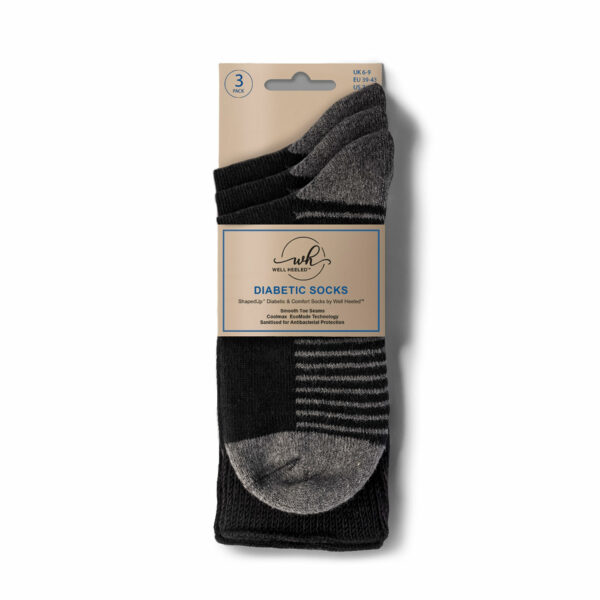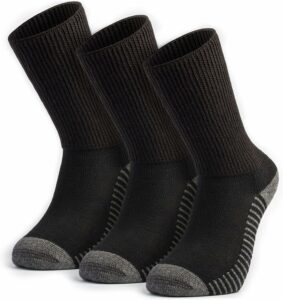Diabetic Socks by Well Heeled – A small UK business with a big caring background.
At Well Heeled, we aim to provide the best diabetic socks that we can, though design to manufacturing. Our aim is to provide a product we are not only proud of, but that helps you or your loved ones to support their foot care too. Our socks are more than just ‘diabetic’ or ‘comfort’ socks, they are comfortable for anyone to wear.
“With a background in care and support, I wanted to design a product that was not only fit for purpose, but that I would be proud to be the business owner of. A personal product that people would love to wear.” Anthony – Owner of Well Heeled.



